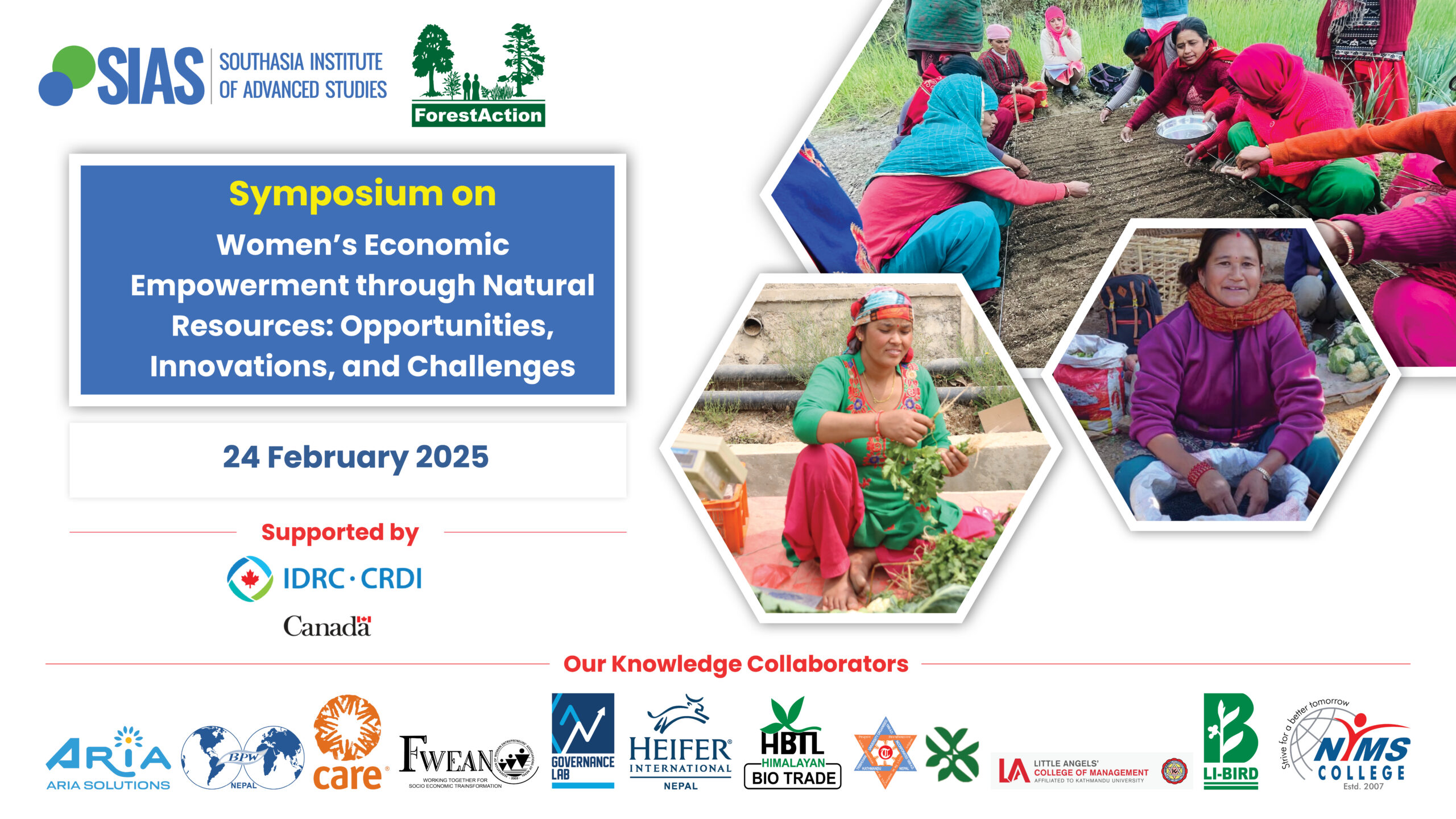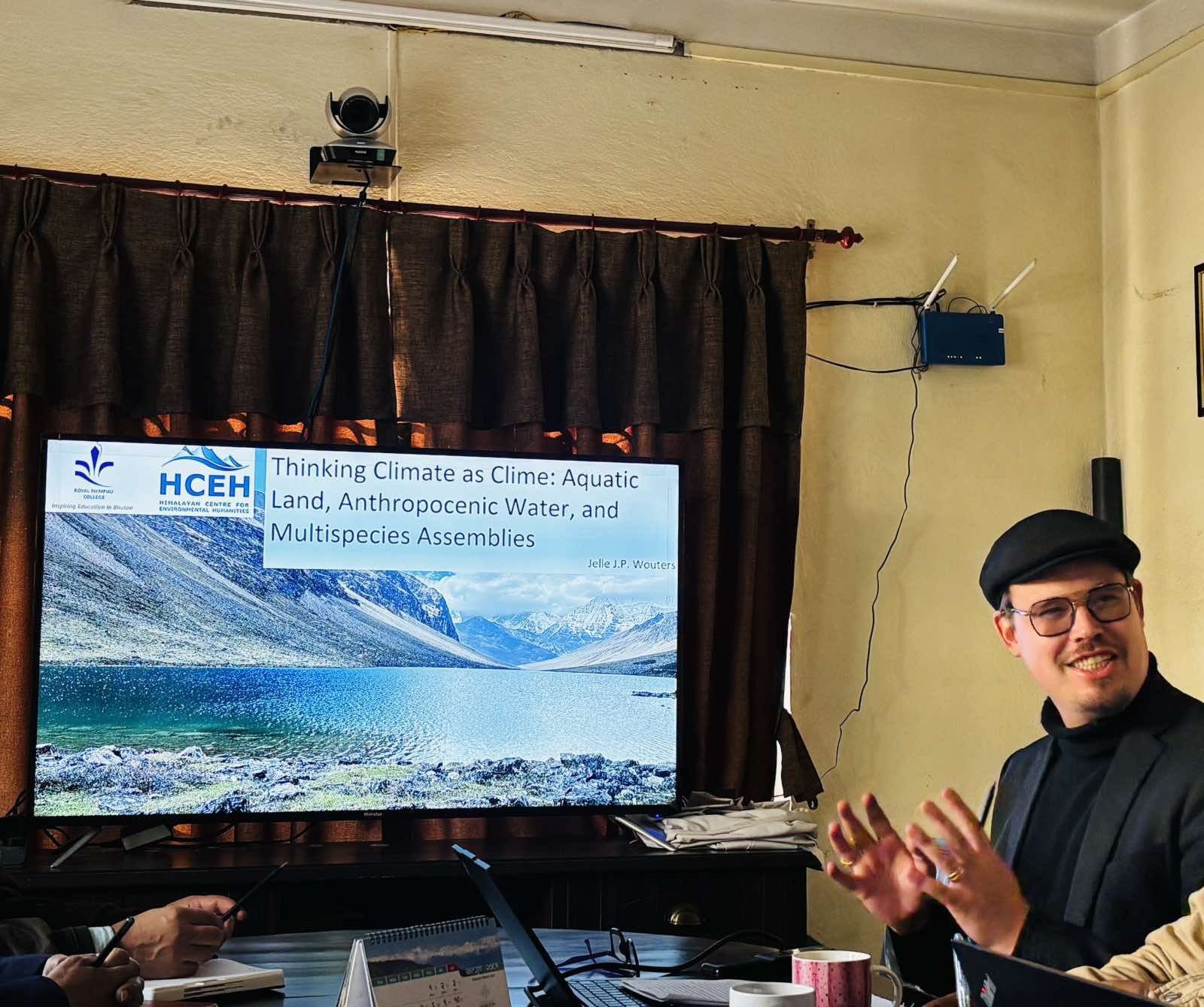Malarani Rural Municipality (Malarani) in Arghakhanchi District organized an inter-palika interaction program on 19 April 2025 on “Gender Responsive Budgeting: Practice, Processes, and Learning”, with the technical assistance from Southasia Institute of Advanced Studies (SIAS). The primary objective of the event was to share the experiences and practices of all the municipalities of Arghakhanchi. Malarani, in particular, organized a series of deliberative forums in the last couple of years with the technical support of SIAS and worked towards institutionalizing Gender Responsive Budgeting (GRB), and hence took the opportunity to share the steps followed as part of the GRB process. In addition, the program aimed to raise awareness and facilitate the exchange of experiences among municipalities in designing and implementing gender-responsive programs.
The program was chaired by the Chairperson of Malarani, with the Chairperson of the District Coordination Committee attending as the Chief Guest. There were altogether 31 participants, including mayors, deputy mayors, chairpersons, and vice-chairpersons from four municipalities and rural municipalities of Arghakhanchi. Sitganga Municipality was the only municipality unable to participate in the sharing event as their officials were engaged in another program. Additionally, the Chief Administrative Officers, the heads of the planning section, and the heads of the women, children, and senior citizens section from each palika, along with municipal council members of Malarani, participated in the event. The Chair of the Inter-palika Coordination Committee of Malarani gave the welcome remarks, highlighting the objectives of the event. Following this was a remark from the Vice Chairperson of Malarani, who underscored the need to prioritise social development as a foundation for sustainable infrastructure growth. She further emphasized the significance of gender responsive planning and budgeting for overall development and urged Palika leaders and staff to place special emphasis on planning and budget allocation through the GRB lens.
Following this, Dr. Mani Ram Banjade, Senior Research Fellow at SIAS, delivered a brief presentation on national policy provisions related to GRB, emphasizing its role as a crucial tool for achieving gender equality, a priority at both national and global levels. In addition to the constitutional provisions, he highlighted the commitments made by various political parties in their respective election manifestos to promote gender equality, underscoring that such goals can be effectively realized through the planning and implementation of GRB across all tiers of government.
Next, two officials from Malarani, Ms. Tirshana Poudel, the Head of the Women, Children, and Elderly Section, and Mr. Netra Prasad Khanal, the Head of the Planning Section, shared the key steps involved in adopting GRB and shared the practices of Malarani in analyzing, planning, and implementing their annual plans and programs through a GRB lens. Their presentation emphasized the importance of embedding gender responsiveness across all municipal programs, rather than limiting it to earmarked funds for gender-focused activities.
After hearing from Malarani, a panel discussion was held on the adoption of GRB planning process by the other Palikas or Arghakhanchi, and the challenges they encounter in implementing it. The panelists were the Deputy Mayors and Vice-Chairpersons from each of the four Palikas and was moderated by Dr. Meeta Sainju Pradhan, Senior Research Fellow at SIAS. Each of the panelists shared their women-focused annual programs implemented by their respective Palikas and how these initiatives are being implemented to support women’s economic empowerment and overall well-being. There were a lot of similarities in the programs and activities of all the Palikas; most of the activities presented were related directly to the activities under the Federal Ministry of Women, Children and Senior Citizens, rather than gender responsive activities within the different sectoral headings.
The key challenge cited by all the panelists was related to the lack of budget for women-centric activities. The Vice-Chair of Malarani highlighted that the concept of GRB remains unclear to many municipal representatives and staff. She added that there is a general lack of awareness that all sectoral programs and budgets can be planned through a GRB perspective. The panelists also noted that reaching the intended female beneficiaries is challenging due to the absence of disaggregated data and the reluctance of women of the targeted groups to participate. Despite these challenges, the Palikas are making efforts to design and implement programs that benefit women.
After the panel discussion, the Chief Guest shared his remarks briefly, commending Malarani for providing a platform that brought together all the Palikas of Arghakhanchi to exchange their experiences and practices related to Gender Responsive Budgeting. The interaction program concluded with closing remarks from the Chairperson of Malarani, who emphasized the event’s success in promoting the significance of gender-responsive planning and budgeting for the holistic development of society. He also extended his heartfelt gratitude to the representatives of all five Palikas for their active participation in the inter-Palika sharing event.




